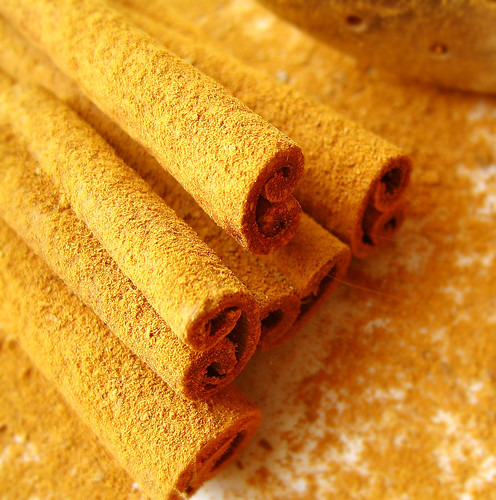Cinnamon, The Wonder Spice
Part of the reason I wrote the last article on insulin resistance is so I could continue to talk about that subject without continually explaining what it is I was talking about.
Sometime around the year 2003, there was a pretty seminal study performed that had an undesirable, although extremely fascinating outcome. The researchers at the time were trying to guage the body’s insulin response to various foods. When they came to apple pie though, they were in for a surprise:
Just half a teaspoon of cinnamon a day significantly reduces blood sugar levels in diabetics, a new study has found. The effect, which can be produced even by soaking a cinnamon stick your tea, could also benefit millions of non-diabetics who have blood sugar problem but are unaware of it.
The discovery was initially made by accident, by Richard Anderson at the US Department of Agriculture’s Human Nutrition Research Center in Beltsville, Maryland.
“We were looking at the effects of common foods on blood sugar,” he told New Scientist. One was the American favourite, apple pie, which is usually spiced with cinnamon. “We expected it to be bad. But it helped,” he says.
Cinnamon, for whatever reason, somehow reduces the body’s requirements for insulin, and improves most of the symptoms of type-II diabetes.

Photo by bitzi on Flickr
Right on the heels of that result came another paper that did a proper double-blind study with cinnamon. The full paper, at Beth’s request, is available here. I’m going to quote the abstract below though:
OBJECTIVE—The objective of this study was to determine whether cinnamon improves blood glucose, triglyceride, total cholesterol, HDL cholesterol, and LDL cholesterol levels in people with type 2 diabetes.
RESEARCH DESIGN AND METHODS—A total of 60 people with type 2 diabetes, 30 men and 30 women aged 52.2 ± 6.32 years, were divided randomly into six groups. Groups 1, 2, and 3 consumed 1, 3, or 6 g of cinnamon daily, respectively, and groups 4, 5, and 6 were given placebo capsules corresponding to the number of capsules consumed for the three levels of cinnamon. The cinnamon was consumed for 40 days followed by a 20-day washout period.
RESULTS—After 40 days, all three levels of cinnamon reduced the mean fasting serum glucose (18–29%), triglyceride (23–30%), LDL cholesterol (7–27%), and total cholesterol (12–26%) levels; no significant changes were noted in the placebo groups. Changes in HDL cholesterol were not significant.
I want to point out that those numbers are extremely amazing. The current drugs on the market that reduce cholesterol levels are very hard on the liver, and have a hard time reducing cholesterol to the extent demonstrated in this study. In addition, a 18-29% reduction in fasting insulin levels is also difficult to do using the current arsenal of diabetic medications.
While this study was primarily interested in the results of cinnamon on type-II diabetics, the results are most likely applicable to those people with insulin resistance as well (since insulin resistance is often the precursor to full blown type-II diabetes). I imagine there are now a flood of studies in the works that will investigate whether or not cinnamon can have favourable results in a diet aimed at losing weight. We’ll see (however, based on those numbers, I suspect it would help).
If you want to add cinnamon to your diet to find out for yourself, the recommendation is to consume about 1/2 – 1 full teaspoon of cinnamon twice a day. You can throw some into your morning coffee, or stir it into a cup of milk if you want.